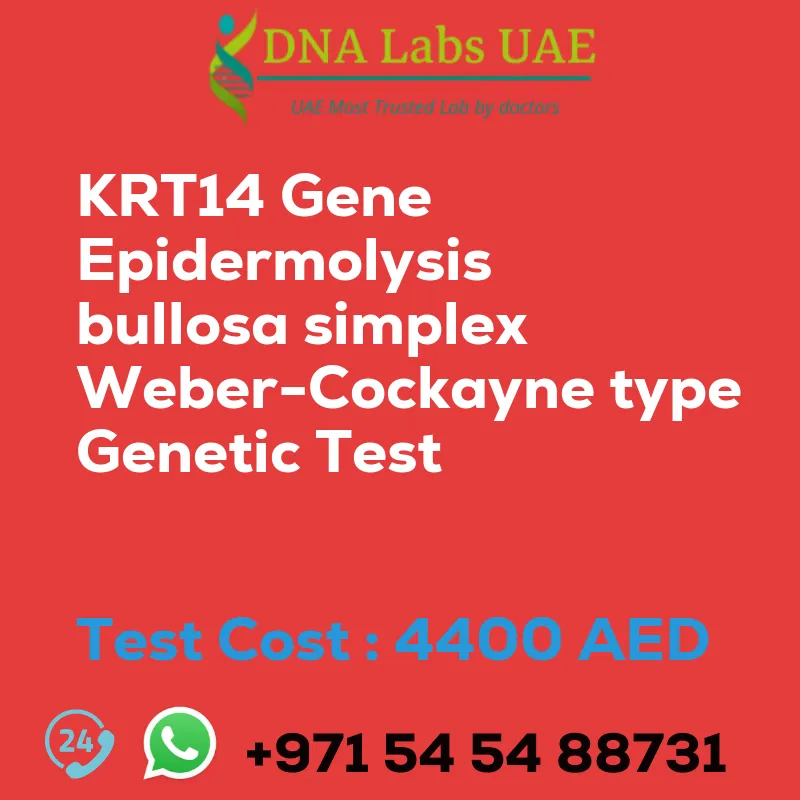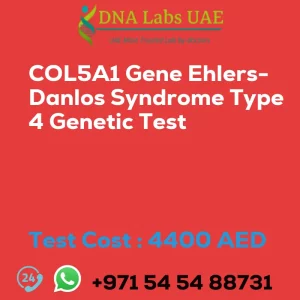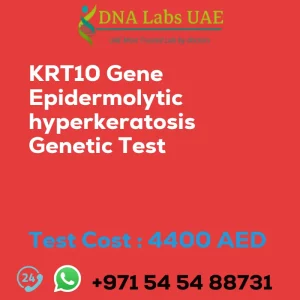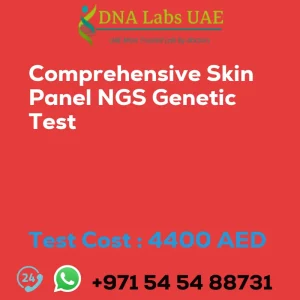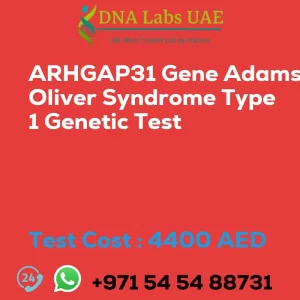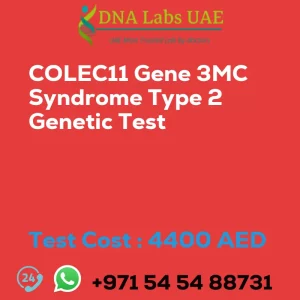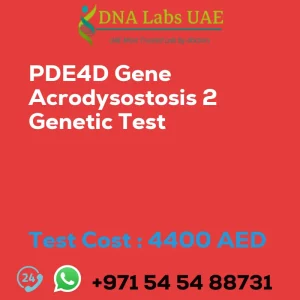KRT14 Gene Epidermolysis bullosa simplex Weber-Cockayne type Genetic Test
Welcome to the DNA Labs UAE blog! Today, we will be discussing the KRT14 Gene Epidermolysis bullosa simplex Weber-Cockayne type Genetic Test. This test is specifically designed to diagnose and identify the KRT14 gene associated with a condition called epidermolysis bullosa simplex (EBS), specifically the Weber-Cockayne type.
Test Details
Epidermolysis bullosa simplex (EBS) is a rare genetic disorder characterized by blistering of the skin and mucous membranes. It is caused by mutations in genes that provide instructions for making keratins, which are proteins that help maintain the structure and integrity of the skin. The KRT14 gene is one of the genes associated with EBS.
Our KRT14 Gene Epidermolysis bullosa simplex Weber-Cockayne type Genetic Test utilizes Next-Generation Sequencing (NGS) technology. NGS genetic testing is a type of genetic test that uses advanced sequencing technologies to analyze multiple genes simultaneously. In the case of EBS, NGS can be used to identify mutations or variations in the KRT14 gene that may be responsible for the disease.
To perform the test, we require a DNA sample, which can be obtained through a blood sample or cheek swab. The DNA is then sequenced using NGS technology to analyze the entire coding region of the KRT14 gene, as well as other relevant genes associated with EBS. The test aims to identify any disease-causing mutations or variations in these genes.
Test Components and Price
The cost of the KRT14 Gene Epidermolysis bullosa simplex Weber-Cockayne type Genetic Test is 4400.0 AED. The test can be performed using a blood sample, extracted DNA, or one drop of blood on an FTA card.
Report Delivery and Method
The report for the KRT14 Gene Epidermolysis bullosa simplex Weber-Cockayne type Genetic Test will be delivered within 3 to 4 weeks. The test is conducted using NGS technology.
Test Type and Doctor
The KRT14 Gene Epidermolysis bullosa simplex Weber-Cockayne type Genetic Test falls under the category of Osteology Dermatology Immunology Disorders. The test is typically ordered by dermatologists and is performed in our Genetics department.
Pre Test Information
Prior to undergoing the KRT14 Gene Epidermolysis bullosa simplex Weber-Cockayne type Genetic Test, it is important to provide the clinical history of the patient. Additionally, a Genetic Counselling session may be conducted to draw a pedigree chart of family members affected with KRT14 Gene Epidermolysis bullosa simplex, Weber-Cockayne type NGS Genetic DNA Test gene KRT14.
Conclusion
NGS genetic testing for the KRT14 gene associated with Epidermolysis bullosa simplex Weber-Cockayne type is a valuable tool for confirming a diagnosis, understanding the genetic cause of the disease, and guiding treatment decisions. It can also be useful for genetic counseling and family planning purposes. It is important to consult qualified healthcare professionals specializing in genetics for the performance and interpretation of genetic testing.
| Test Name | KRT14 Gene Epidermolysis bullosa simplex Weber-Cockayne type Genetic Test |
|---|---|
| Components | |
| Price | 4400.0 AED |
| Sample Condition | Blood or Extracted DNA or One drop Blood on FTA Card |
| Report Delivery | 3 to 4 Weeks |
| Method | NGS Technology |
| Test type | Osteology Dermatology Immunology Disorders |
| Doctor | Dermatologist |
| Test Department: | Genetics |
| Pre Test Information | Clinical History of Patient who is going for KRT14 Gene Epidermolysis bullosa simplex, Weber-Cockayne type NGS Genetic DNA Test. A Genetic Counselling session to draw a pedigree chart of family members affected with KRT14 Gene Epidermolysis bullosa simplex, Weber-Cockayne type NGS Genetic DNA Test gene KRT14 |
| Test Details |
The KRT14 gene is associated with a condition called epidermolysis bullosa simplex (EBS), specifically the Weber-Cockayne type. EBS is a rare genetic disorder characterized by blistering of the skin and mucous membranes. It is caused by mutations in genes that provide instructions for making keratins, which are proteins that help maintain the structure and integrity of the skin. NGS (Next-Generation Sequencing) genetic testing is a type of genetic test that uses advanced sequencing technologies to analyze multiple genes simultaneously. In the case of EBS, NGS can be used to identify mutations or variations in the KRT14 gene that may be responsible for the disease. The NGS genetic test for KRT14 gene EBS involves obtaining a DNA sample, usually through a blood sample or cheek swab. The DNA is then sequenced using NGS technology to analyze the entire coding region of the KRT14 gene, as well as other relevant genes associated with EBS. The test aims to identify any disease-causing mutations or variations in these genes. NGS genetic testing for KRT14 gene EBS can help confirm a diagnosis, provide information about the specific genetic cause of the disease, and inform treatment decisions. It can also be useful for genetic counseling and family planning purposes. It is important to note that genetic testing should be performed and interpreted by qualified healthcare professionals who specialize in genetics. |

